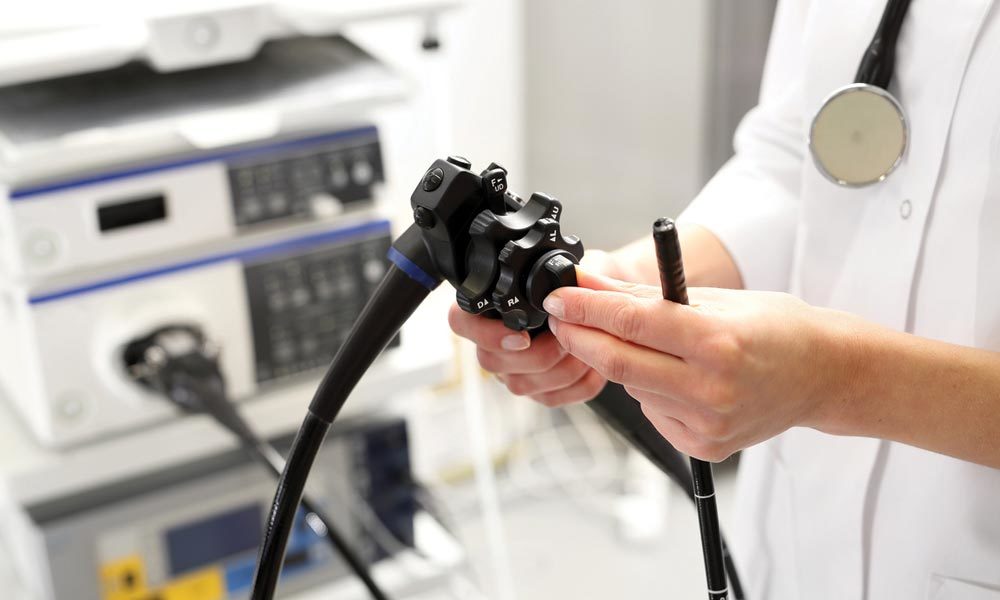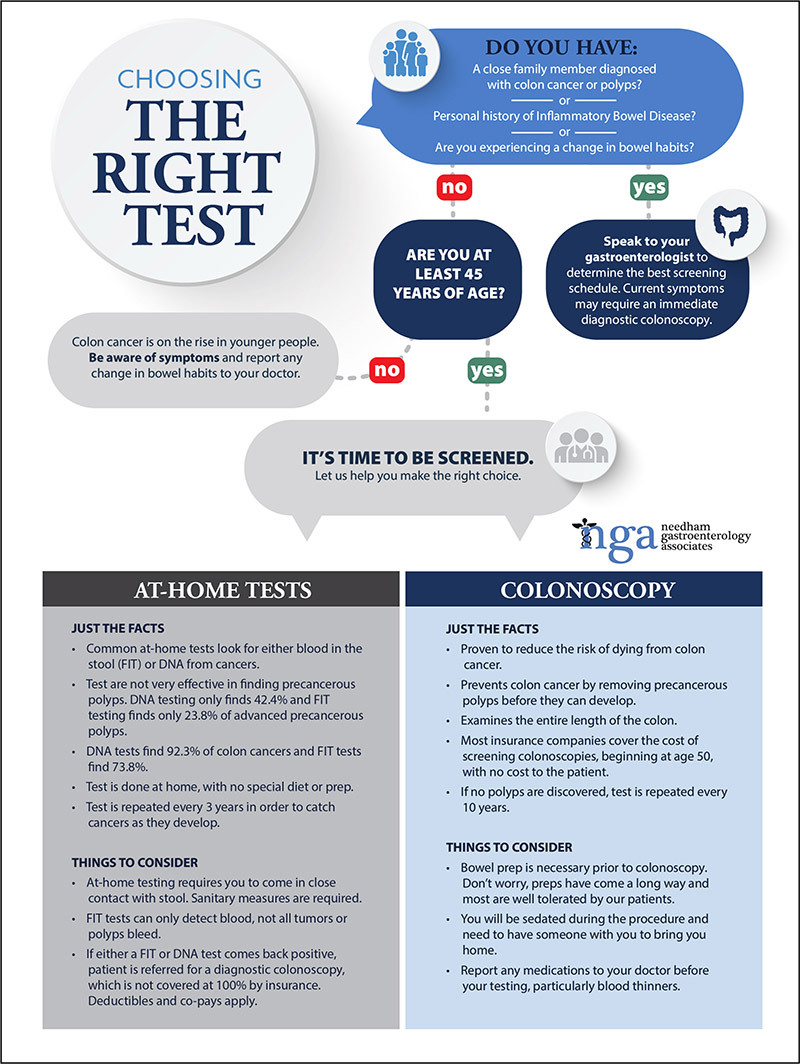
When Is A Colonoscopy The Right Answer?
You may have heard the recent news from The American Cancer Society regarding screening tests for colorectal cancer, how the recommended age for your first colonoscopy has now dropped. The long-standing recommendation to begin preventative screening at age 50 has now been changed to start at age 45, and that’s for patients with a low or average risk of developing this extremely common form of cancer. So what does that mean for you, and what are your options other than receiving regular colonoscopies?
I’ve Heard Of Colonoscopies, Are There Other Tests To Detect Colorectal Cancer?
The short answer is that yes, there are other tests that are available and can detect colorectal cancer, some of which can actually be done at home. Although it may seem tempting to skip a seemingly more invasive test in favor of something you can take care of in the comfort of your own home, the evidence for the efficacy of these tests is not on par with that of a colonoscopy.
What Is An At-Home Test For Colorectal Cancer?
There are two different types of tests that can be conducted at home, one is called a Fecal Occult Blood Test (FOBT) and the other is a Stool DNA Test (FIT-DNA). They both rely on the patient to collect a stool sample, which must be done using proper sanitary practices, which may be difficult to achieve. The stool samples are checked for blood, certain proteins, and DNA biomarkers. The samples are then analyzed, with the results potentially indicating a presence of colorectal cancer.
What Are The Drawbacks to These At-home Tests?
While they can detect colorectal cancer in some patients, they are also more prone to show false positives, which may lead to unnecessary stress and additional testing leading to additional expenses as well. Also, some of these at-home tests may need to be conducted every 1 to 2 years, in contrast to the every 10 years you might get a colonoscopy. The frequent repeats are needed because these tests are better at finding cancer than precancerous polyps. When at-home tests come back positive, the patient is advised to schedule a colonoscopy. This recommendation changes how insurance covers the follow-up colonoscopy.

What’s My Best Tool Against Colorectal Cancer?
Some people are simply more prone to developing this form of cancer due to family history. Family history is always a big risk factor for developing the disease, which is why it is important to understand your family history, as well as discuss it with your doctor. Certain aspects of this may lead to having a colonoscopy earlier than the newly recommended age of 45. Even though family history is a big component of colorectal cancer diagnosis, you shouldn’t ignore your health or symptoms if you don’t fall into that category. One of the most important things you can do to lower your risk is to maintain a healthy weight, a diet low in red and processed meats, keep up a good exercise routine, and stop smoking and drinking. If you’re concerned about these new recommendations or are worried about your own family history of the disease, contact Needham Gastroenterology today for an appointment. We can assess your individual circumstance to decide what is best for you and whether you should have early testing done. It is important to understand your insurance coverage while making healthcare decisions. Most insurance companies have not adjusted coverage to match the new screening recommendation age.